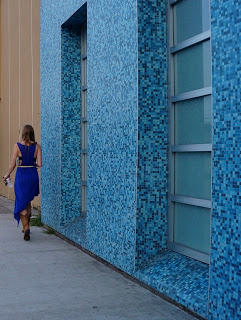WE ARE ALL HERE BUT WE HAVE NOT LEFT
Orlando Luis Pardo Lazo
The Tucumanian night of Miami seizes me with hunger and with no desire to leave the hotel. I am alone. They have already forgotten me, luckily. I have already forgotten myself. Love is not waiting for me outside. Not yet. Not today. Tomorrow we’ll see.
I turn on the internet. A bit of crazy videos. A bit of Cuban culture. Some music I don’t recognize. I prepare my next month here. I hear the Metro that runs on the elevated track. I hear the moon rotating, and it is not the northern moon that I know so well from the United States. We’re not there. I hear the “shipwreck” tone from my AT&T smartphone.
Some friends of the barbarity are calling my mobile. It’s past ten o’clock. But barbarity is always about to knock on my door. And I hear them, having fun, über-Cubans, repeating the wonderful and filthy jokes from two decades ago. They are Erick and Nelson and already they are coming, driving over for me. In the Palmetto sports car. There is no option. I tell them “Don’t show up without a good plate of spaghetti.” And fruit.
My luxury hotel is a boarding home. I do nothing. I am homeless in Miami. But still not exactly out on the street. I make contacts with the so-called “counter-revolution.” What a privilege. I make myself intolerable to State Security, the guarantee that my criminal red Lada* will take my life in Bayamo or in Boston or in whichever of these hotels transparent to the Havana mafia. I wonder how still there does not preside in this country an agent of Cuban intelligence. I do not doubt that they have placed a hidden camera in the room to blackmail me when I return. Or a radioactive pin to guarantee me cancer, as the Cuban subsidiary of the KGB. Poor little assassins.
It’s a question of waiting. For the moment, I type. I go down to the lobby and finally I swallow the spaghetti with desperation. Fuck, was I hungry. It is beautiful to go hungry. Don’t feel too bad for Orlando Luis. In Cuba he was weary of swallowing and swallowing. There is a surplus of Cuban food today. It is needless. Hunger is an invention of the dissidence movement, when it doesn’t know how to have another vision, when it doesn’t think. I came to the United States to see if I could stop eating in Cuba. And I’m achieving it since March 5, when I set foot in a beautiful New York park.
We talk with Erick and Nelson about our work there on the Island. We were scientists. We were excellent. We were a disaster.
It was all comical and Machiavellian. We leave the hotel as we left Cuba. We buy stuff to drink. The city looks like a deserted airport. At these hours of the night I continue still more convinced that it is not at all about Miami. This is West Berlin and we, the newly appeared from the barbarity, we are going to upset its urban logic with so many Cubans fleeing towards here.
The man who serves us is an Afghan. The guy does not know Spanish in Miami. For nothing more than that, he deserves an automatic deportation. To Guantanamo, of course.
For a moment we seriously consider turning him in. Not for any specific motive. To screw with him. So that something more than exile happens in our lives.
We continue talking of the Biotechnology Era in Cuba. My friends cannot stay past twelve. In the morning they work. I’m just a witness. This was why they took me out of the hotel. So that I could give testimony about their lives. I’m a hostage.
Half of Havana now is now passing through Miami. This will be the final evidence of Castroism as the measure of all things, as a criterion of truth. One of the two cities does not exist. They would annul themselves by coinciding at the same time. One of the two cities will have to die. And I want to be in it at that moment.
Nor are any of our thousand and one lives here. We all leave a very important phone call that is left for us to make. Or it gave us a busy signal and for that reason we need to try again. None of us has fully arrived here. Nobody deserves the thousandth-and-first death of returning there.
The laughter has given me a little indigestion. They drive me back to the hotel and in the bathroom of the room, I attempt without result to return the spaghetti with my head stuck in the bowl. Not even that. I digested it too fast. It’s called vertigo. I wish that none of this would have happened to us. I wish that we were all awake, but the nightmares stick to us like a bad slogan. I would not like to leave it unsaid here and now, that impossibility.
*Translator’s note: Lada: A Russian-made car common in Cuba and used by the police, among others.
5 June 2013

